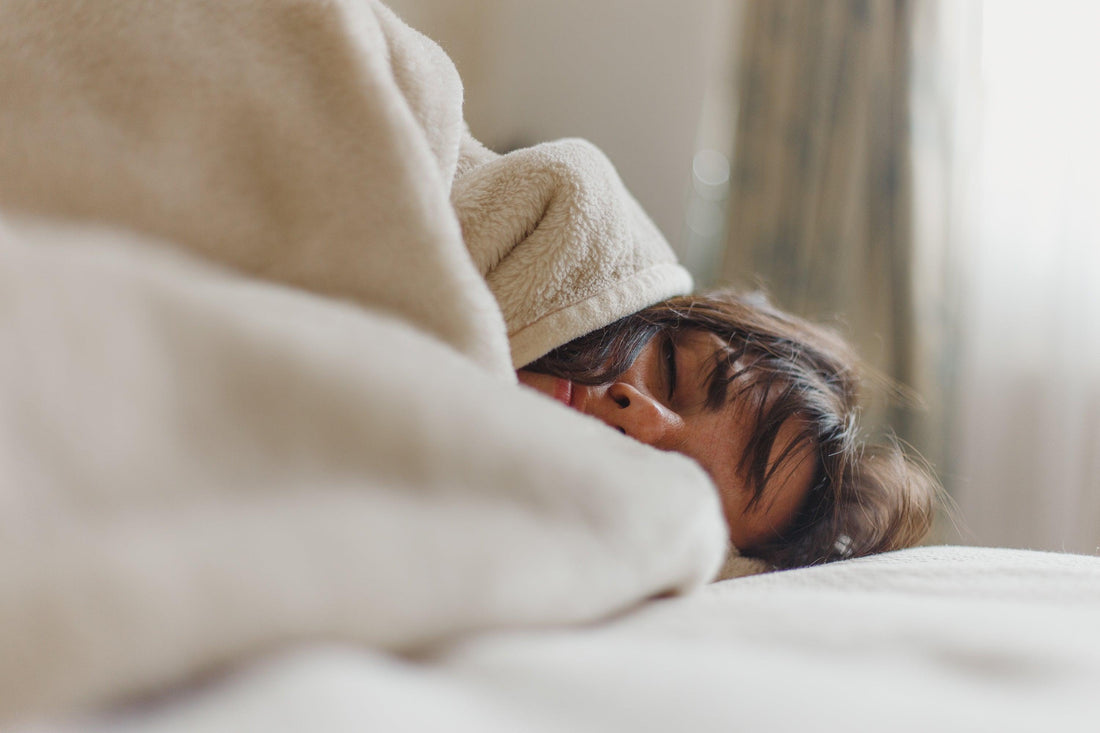
Why Do We Dream? Top 3 Dream Theories
Why Do We Dream?
Maybe you’re sitting down to take an exam that you haven’t studied for, or you’ve gone to brush your teeth and found they’ve all fallen out, you could even be trying to run away from a mysterious figure and can’t seem to get moving. Dreams can be seriously weird. Weirder than dreams about test-taking or sharks that can walk on land (don’t ask) is the fact that we have no idea why we dream.
Of course, clever clogs all over the world have studied dreams to come up with theories about how and why we do it so there are a few different options to choose from. So, we’re diving into the science behind dreams and chatting about a few of the most popular theories. From training our brains to sub-conscious problem solving, we’ll be breaking down how scientists think these theories work and giving you advice on how to get the best nights sleep for sweet dreams.
Fight Or Flight Training
We usually dream during the REM (rapid eye movement) stage of our sleep cycles, which usually happens around an hour and a half after we fall asleep. Our brain activity speeds up, and one part of the brain is putting in overtime through this stage: the amygdala. If you’ve not heard of this part of your brain, neither had we so we’ll explain!
The amygdala is the part of your brain that’s associated with the fight or flight response, a survival instinct that’s been a widely known aspect of our mind. One of the theories on why we dream is tied to the amygdala being so active while dreaming, and it’s that it’s your brain getting you ready for any potential threats.
This sounds pretty creepy, we know, and it ties well with the threat simulation theory. This theory suggests that dreams make for a safe place to rehearse new survival strategies, whether that’s socially or actual real danger. It’s pretty caveman, but experts think that even the uncanny aspects of a lot of dreams support this idea. REM sleep is also when your muscles are totally relaxed, so you won’t have to worry about moving around too much.
Going Over Your Memories From The Day
This theory is probably the one most highly regarded as the reason why we dream and is widely held across the scientific community so prick up your ears if you want to sound clever at your next party! Many scientists and psychologists believe that dreams are actually our brain’s way of consolidating and committing our memories from the day.

A lot of research around sleep suggests that sleeping helps you store memories, and dreams are thought to be a way to sort through the important stuff. Analysing complex emotions through memories is considered by experts to be a way to convert short term memories from the day into long term storage. It’s also been suggested that dreaming allows you to get rid of unimportant memories and keep things you’ve learned.
We’ve covered this theory before on our blog, so for more in-depth info on the memory sleep theory check out our look into sleep science here!
Solving Problems And Finding Inspiration
“It came to me in a dream” is a pretty well-known phrase, but why have so many cultural moments and scientific breakthroughs happened while we’re tucked up in bed asleep. The notion that dreams are a place where we can let our imaginations run wild is a popular one, and the theory is that our brains use dreams as a problem-solving technique.

The idea with this theory is that dreams help with problems and creative questions that need some intense visualisation and there are heaps of examples across history like:
- Salvador Dali’s Persistence of Memory
Salvador Dali was a Spanish artist known for his talent for surrealism and often used images from his dreams as inspiration.
No, we’re not kidding! The search engine we all rely on today was thought up during a stressful night founder Larry Page had where we dreamt he could download the entire web onto some old computers. Once he woke up he thought over the dream and realised it was possible.
- Let it Be
One of the most well-loved songs by the Beatles came to Paul McCartney in a dream where he was visited by his late Mother.
Why Is Dreaming Important?
While we might not know the exact reason, many scientists agree that dreaming is an important aspect of our sleep cycle, that helps us maintain a healthy brain function and get the most out of daily life. When it comes to dreams the important part is to get a great night’s sleep. So, why not invest in your health with a super comfortable sleep space?
Our zero-gravity roll neck pillow is perfect for drifting off in the utmost comfort, so you can dream without waking up with any sore muscles. Or if you’ve found yourself struggling to sleep in this heat, then the Snow Pillow with cooling arctic gel technology is amazing for cooling off and keeping your temperature regulated so you don’t have your sleep interrupted.

